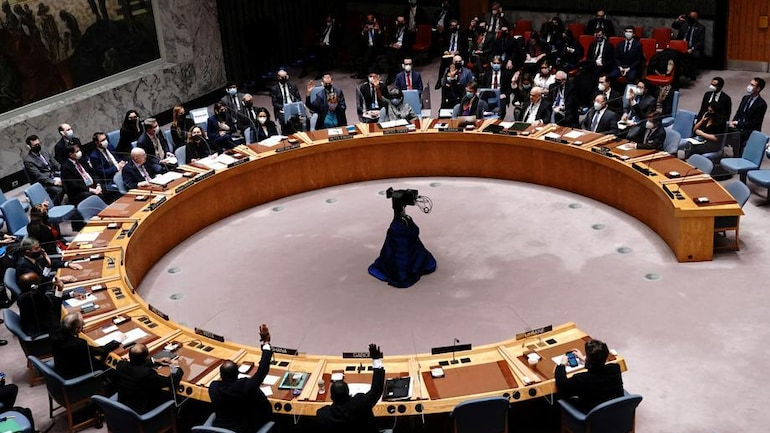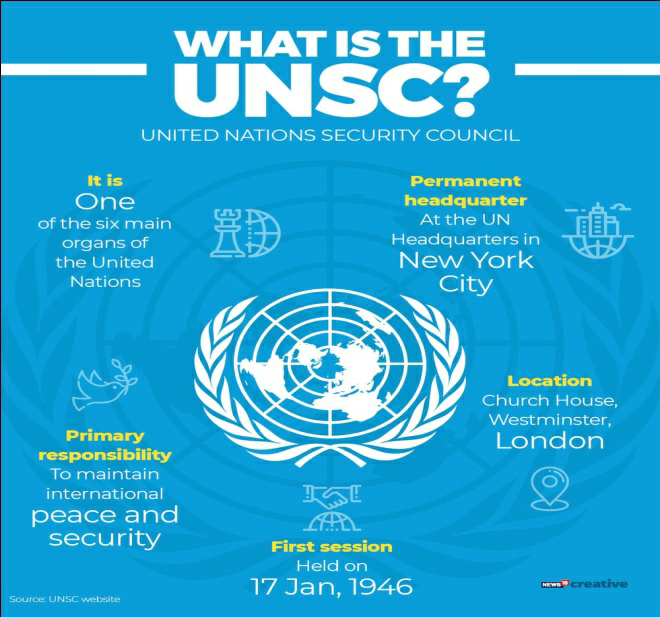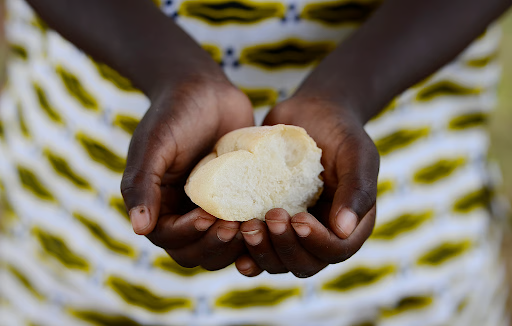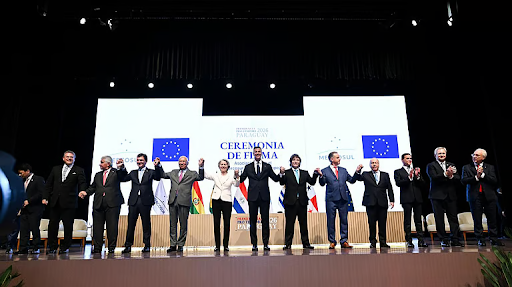Description

Copyright infringement is not intended
Context: The United Nations Security Council (UNSC) emergency meeting convened after Ukraine’s Zaporizhzhia nuclear power plant caught fire, as Russians moved in on the facility and seized control of it.
- The International Atomic Energy (IAEA) told that no reactors had been damaged.

India at UNSC:
- India has recently taken over the presidency of the United Nations Security Council.
- India began its eighth term as a non-permanent memberof the UNSC on January 1 and will remain as such for a period of two years.
- India's bid for a permanent seat at the UN Security Council has support from four of the five P5 nations, namely the US, UK, France and Russia.
- China is the only permanent memberwhich is yet to officially back India's bid.
Composition of UN Security Council:
The UN Security Council is composed of
- 15 members, including five permanent member states - China, France, Russian Federation, the United States, and the United Kingdom - and
- 10 non-permanent member states elected by the United Nations General Assembly (UNGA).
- Each non-permanent member gets the opportunity to work as UNSC president.
- Ten non-permanent members are elected to the UNSC every year for a two-year term. India's current term began on January 1 of this year and will last until December 31, 2023.
- The 10 non-permanent seats are distributed among the regions of the world: five seats for African and Asian countries(three are for Africa and two for Asia), one for Eastern European countries, two for Latin American and Caribbean countries, and the remaining two for Western European and other countries.
- The Africa and Asia Pacific group takes turns every two years to put up an Arab candidate.
How does presidency of UNSC rotate?
- Each non-permanent member gets the opportunity to operate as president of the UN Security Councilduring the two years it is part of the grouping.
- The presidency of UNSC changes hands every month between its membersin the English alphabetical order of the member states' names.
- In August, the presidency was passed on from France to India. Similarly, Ireland is slated to take over the presidency from India in September.
- India will be in line for the presidency again in December 2022.
- The country's last term as a non-permanent member of the UNSC was in 2011-12, which was preceded by stints in 1991-92, 1984-85, 1977-78, 1972-73, 1967-68, and 1950-51.
Powers of the UNSC President:
- The presidency derives responsibility from the Provisional Rules of Procedure of the United Nations Security Councilas well as UNSC's practice.
- The holder of the presidency is considered to be the 'face' and spokesperson of the UNSC.
Responsibilities of the UNSC president include:
- Calling meetings of the UN Security Council
- Appealing to parties in a conflict to "exercise restraint"
- Reading statements of the UN Security Council to the press
- Approving provisional agenda (proposed by the secretary-general)
- Presiding at UNSC meetings and deciding questions relating to policy and overseeing any crisis
Veto power of UNSC member states:
- The UN defines 'veto' as a "special voting power", which provides that "if any one of the five permanent members cast a negative vote in (UNSC), the resolution or decision would not be approved".
- However, the "veto power" is restricted to P5 member states of the UN Security Council. Non-permanent members of the UNSC do not enjoy this privilege.
- Article 27 of the UN Charter says each member of the UNSC shall have one vote and that decisions on "procedural matters" shall require no more than the affirmative vote of nine out of the 15 members.
- Decisions on any other matter need not only an affirmative vote of nine members but also the concurring votes of the permanent members.
https://www.thehindu.com/news/international/un-security-council-meets-to-discuss-zaporizhzhia-nuclear-plant-fire/article65191581.ece








